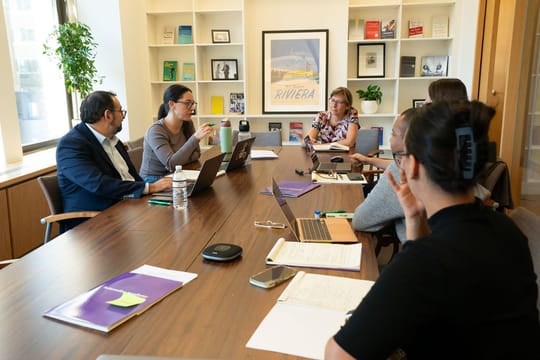Free the Inquiry
A Substack blog

Fresh news, smart commentary, original research, and expert analysis from Team HxA.
The team at Heterodox Academy advocates for three things in higher ed: open inquiry, viewpoint diversity, and constructive disagreement. Our motto, “Great minds don’t always think alike,” captures what we work on every day: moving the academy in the direction of allowing and indeed encouraging great minds to go wherever solid evidence and thoughtful reasoning take them.
Our Substack newsletter, Free the Inquiry, is our way of keeping you up-to-date on what’s happening in our mission’s field. We bring you fresh news, smart commentary, original research, and expert analysis from our crack staff to keep you informed.
From September 2015 - May 2024 the HxA Blog published articles by members. As of August 2024, the blog is hosted on Substack and written by Team HxA. All Substack articles are cross-posted here.
Subscribe to Free the Inquiry on Substack
Free the Inquiry is hosted on Substack. Subscribe to get posts sent directly to your inbox as soon as they are published. Otherwise you'll hear about them in our Weekly Bulletin on Tuesdays.
- Filter by Topic
- All Topics
- Open Inquiry
- Viewpoint Diversity
- Constructive Disagreement
- Institutional Neutrality
- STEM
- Canada
- Academic Freedom
- Required DEI Statements
- Filter by Type
- All Formats
- Free the Inquiry
- Book Summary
- Commentary (Letter)
- Commentary (Opinion)
- Essay
- Research Brief
- Who’s Signing On For “Constructive Engagement” in Higher Ed?May 8, 2025+Alex Arnold+Constructive Disagreement
Subscribe to our emails and get the latest news, announcements, and reads from HxA and our members each and every Tuesday, event invites to through-provoking discussions and gatherings, and the latest data and insights from our research and policy teams.